Haunted Places To Visit in Indonesia
1) A Thousand Doors, a Thousand Horror Stories: Lawang Sewu, Semarang
Widely
said to be Indonesia’s most haunted place, the Lawang Sewu is notorious
for being featured in the final episode of a local paranormal TV
series, where an apparition was caught on video. A few days later,
rumours spread online that one of the participants had died
mysteriously.
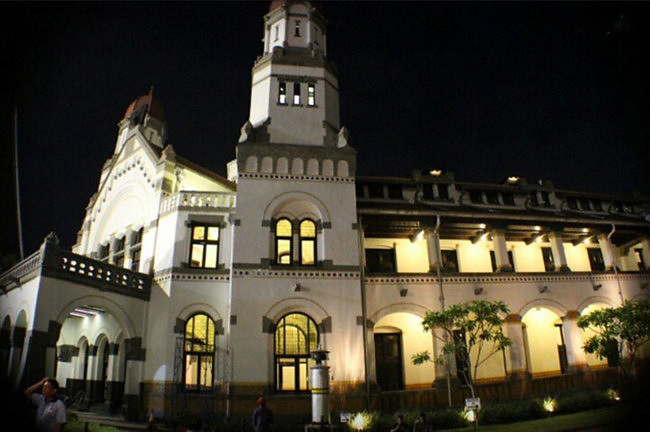
Sitting right in the heart of Semarang, the Lawang Sewu marked the
Dutch’s success in Indonesia. Rich in colonial era atmosphere, the
building itself is a majestic piece of architecture and a modern marvel
at that time. Underground tunnels that were made to cool the building
also served as passageways connecting it to the Governor’s residence and
harbours.
During the Japanese Occupation, the Lawang Sewu was used as their
headquarters in Semarang. The underground tunnels of Building B served
as prisons where inmates were brutally tortured, and their decapitated
heads were piled in a corner of the basement.
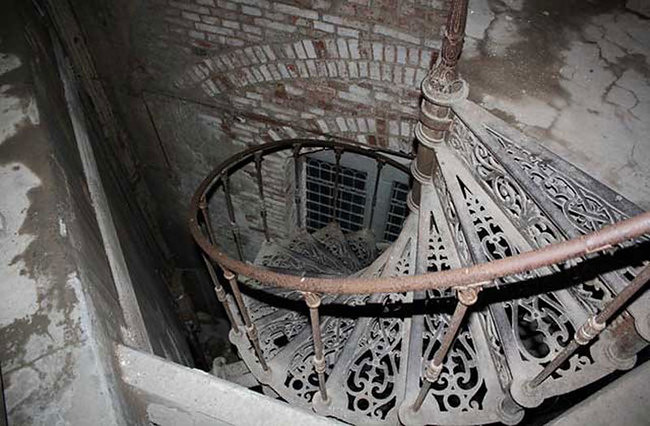
2) An Other-worldly Commute: Bintaro Railway and Manggarai Station
Widely
condemned as the nation’s most devastating railway accident, two trains
collided head-on on Monday morning, 19th October 1987, in Bintaro,
South Jakarta due to an internal miscommunication.
More than 100
lives were lost, some were thrown out on impact, while others bled to
death as they were crushed in between pieces of metal. It was a gruesome
scene, and it took almost two days to completely evacuate the bodies.
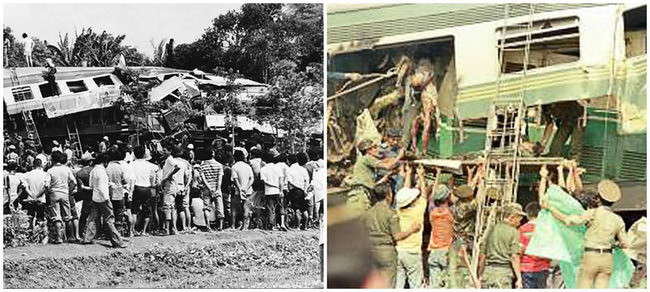
Photo via dudy sudibyo, wikimedia
Since
then, the number of accidents on the exact stretch of railway has oddly
increased, especially on Mondays. Increasingly widespread were stories
of drivers who did not notice warning signs of an oncoming train in
time. There was also a spike in the number of pedestrians who walked
onto the railway tracks, right in front of a speeding train, and they
were believed to be possessed by the Deaf Spirit or Hantu Budek.
The
most recent major accident took place in late 2013, when an oil tanker
was struck by a train, causing a huge explosion killing seven people.
Regarded as Tragedi Bintaro II, the accident reminded the public of the railway’s dark past.
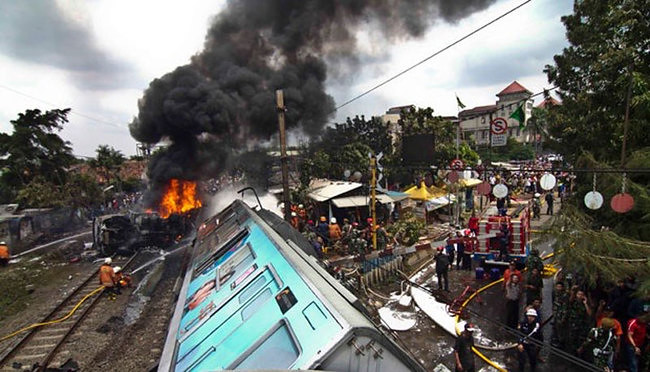
Photo via dian-triyuli-handoko-tempo
The
story doesn’t end there – for decades, the wrecks from railway
accidents around Jakarta are brought to a ‘train graveyard’ at Manggarai
Station where they are put to rest. Unfortunately, although the trains
have stopped operating, the same can’t be said for souls attached to
them. Besides the apparitions reported on this site alone, trains have
also been seen to be travelling way past operational hours with no one
on board.
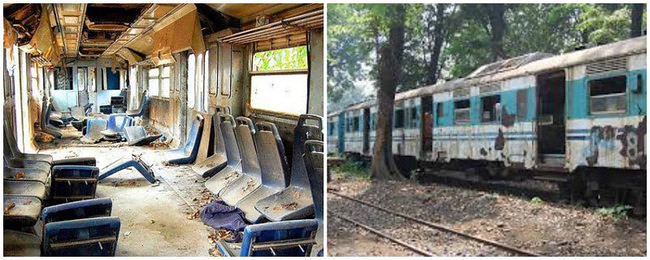
Photo via badilscom
One
of the most bizarre stories is that of a college student who saw what
looked like victims inside the train he was on late one night.
Surprisingly his legs became sore when he reached his destination. He
talked about what happened with the security guards duty, only to find
out that there was no train all along and he had run the whole way.
3) Don’t Forget to Honk when passing by, Jakarta
There is
one thing Jl. Casablanca is known for – inhumane levels of traffic, all
day, every day. As the main access road connecting the suburbs to the
city, the number of drivers and their dodgy road ethics will surely
haunt you in your sleep.
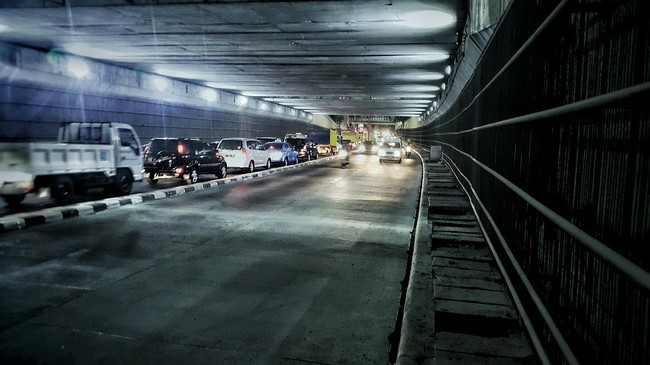
Photo via Matin (TripCanvas)
The
traffic is so bad that passing by Jl. Casablanca every day, we often
forget the road’s sinister secret. Although the eight-kilometre stretch
consists mainly of straight roads, it is a surprising fact that an
accident occurs here every other week, and even the newly built flyover
has already claimed a number of lives.
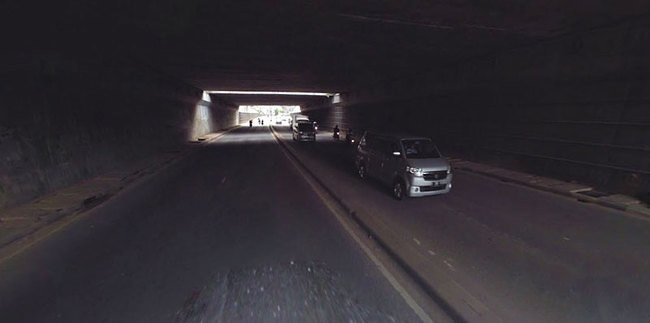
Tracing
back to its origins, when Jl. Casablanca was built in the 80s, an
underpass had cut right through the Menteng Pulo cemetery. The
mishandling of corpses while relocating them is said to have upset the
spirits, including a particular Lady in Red.
Photo via jurukunci
A few years later, an elderly man was found hanging by the neck at the end of the underpass.
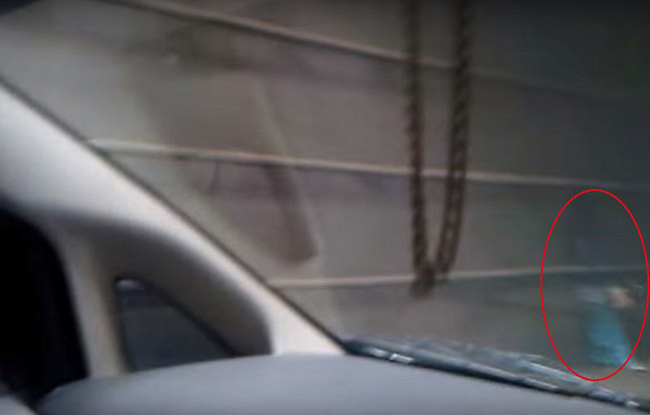
Photo via andi-irawan-youtube
And so they say, always remember to honk three times as you enter the tunnel or you might be given an unpleasant welcome!
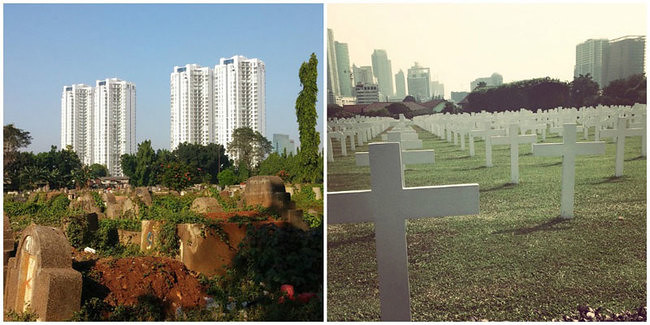
Photo via chandrawitts, nurimanwidianto
4) Go on a Supernatural Shopping Spree at Mall Klender, Jakarta
The
sudden collapse of Indonesia’s economy in the late 90s had stirred up
violence within the people, resulting in looting, mass murders and rape.
On May 15, 1998, an army of looters seized the Yogyakarta Department Store.
As
shopkeepers and visitors scrambled for safety, a fire was deliberately
started and soon engulfed the four-storey building. More than 300 people
were trapped. Afraid of being harmed if they escaped the building, they
remained inside to meet their fiery death.
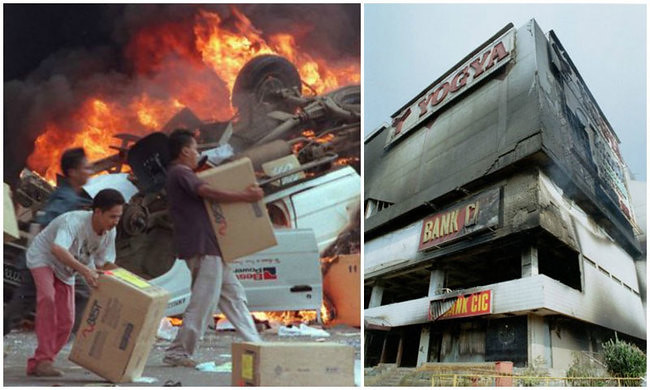
The scars of what is now referred to as Mei Kelabu
(‘Grey May’ in English) remains in the hearts of the affected, no
matter how hard they try to forget. One of the darker moments in
Indonesia’s history, the incident shook the nation as well as the
international community.
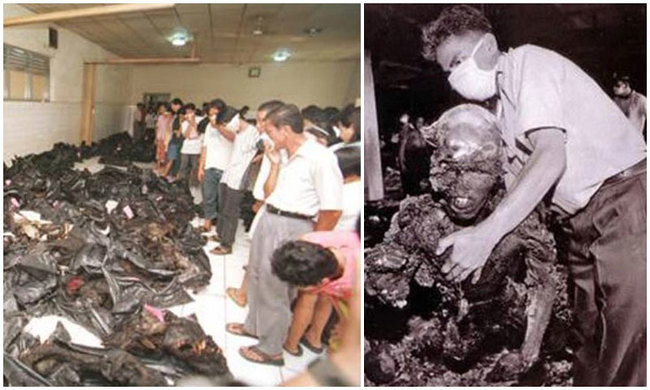
Although
the departmental store was rebuilt as the Klender Mall in the year
2000, it is still difficult for the locals to let go of the traumatic
memories that linger here. Eight ghosts are said to haunt the area,
including phantom bus passengers who usually hitch a ride at night, only
to disappear a few hundred metres later.
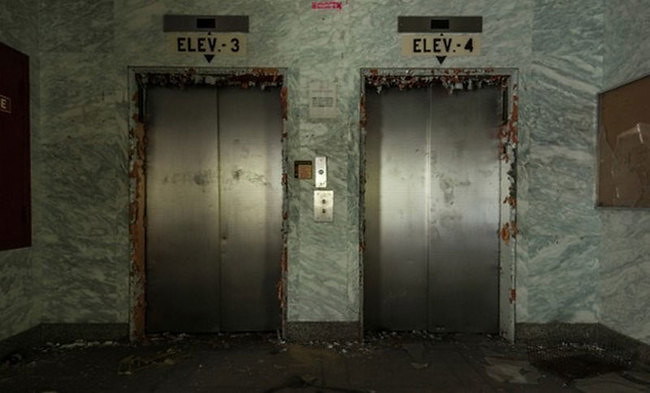
Photo via segiempat
A
phone booth that was part of the original building is also never
removed as it is believed it would upset the spirits attached to it.
5) The Epicentre of the ‘Bogor Triangle’: Mount Salak
Out of
the many places in Indonesia that claim to be haunted, Mount Salak has
swallowed the greatest number of victims to date, including seven
unexplained air crashes in the past decade that involved planes which
suddenly lost contact with control towers.
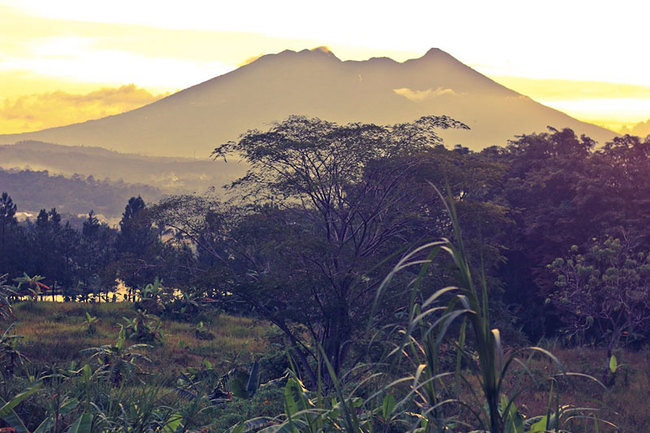
Photo via sonofmountmalang
Although
not as tall as most mountains in Java, conquering Mount Salak is
considered to be a daunting task, even to experienced hikers. Besides
its deadly trails, lakes and poisonous gas claim the lives of unlucky
hikers every year. Many of those who survive tell horrific tales walking
around in circles for hours when they lost their way in its dense
forests.
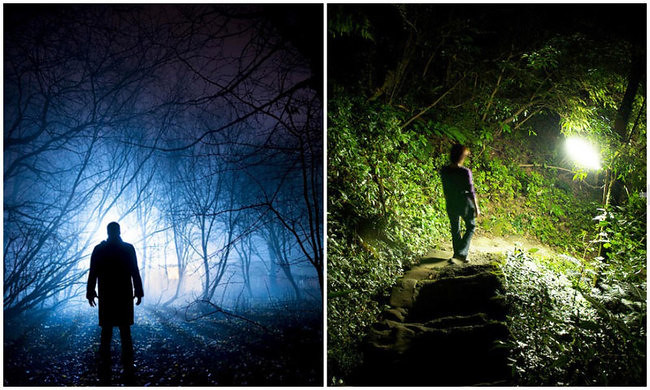
Photo via fineartamerica, neil wade
The
most recent air crash on Mount Salak took place on May 9th, 2012, when a
Russian Superjet on a test run supposedly flew right into the face of a
cliff after losing radio contact, killing everyone on board.
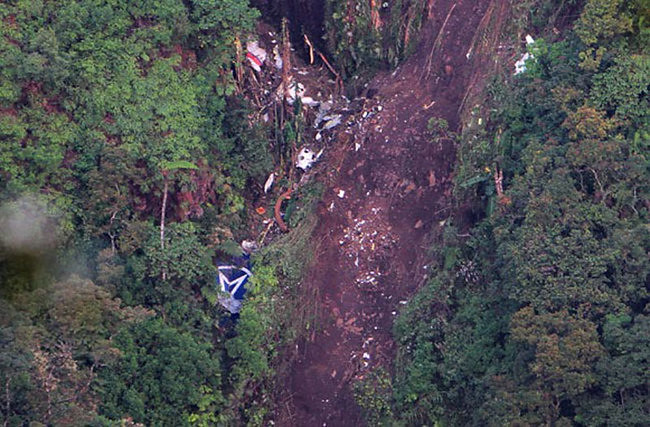
Photo via wirasatria, inilah.com
But
more peculiarly, the search and rescue team all reported of having the
exact same dream about a mysterious woman who led them into a house full
of beautiful women. The same team also reported to have heard a woman
crying for help, but she was never found. The cries oddly came from a
different area than that of the crash.
6) Never Wear Green in the South Sea: Pelabuhan Ratu, Sukabumi
A
tale of jealousy within the Royal family of 16th Century Kingdom of
Mataram has brought about the death of a Queen who gave her life to the
open sea, and a legend that lives on.
Just a few hours from the
bustling city of Jakarta lie the beautiful beaches of South Sukabumi,
with Pelabuhan Ratu right in the center of it. It’s a coastal town where
beach villas scatter all over white sandy beaches, with the curl of the
waves just right to satisfy any surfer.
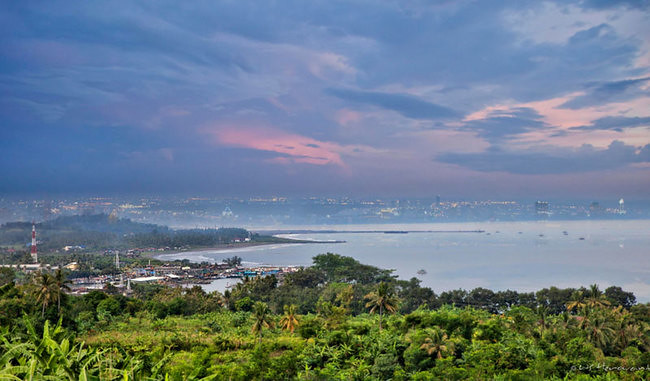
Don’t
get too carried away though – quite a handful of holidaymakers have
never resurfaced after taking a dip in the ocean. Most of the victims
were men, suspected of wearing green attributes while swimming, and
stories spread that the Nyi Roro Kidul (Queen of the Southern Sea of
Java) took their lives as wearing her colours upset her.
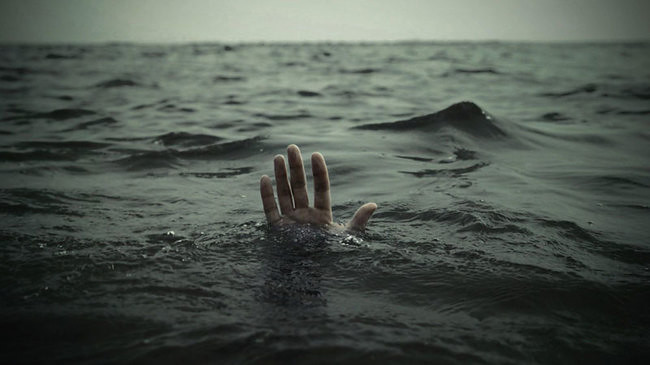
Photo via estergita
Different
from most urban legends in Indonesia, Nyi Roro Kidul’s presence is
revered by many, including President Soekarno himself.
In fact,
Room 308 of the Samudra Beach Hotel has been reserved for her visit.
Available for meditation purposes, the room is beautifully designed with
green and golden threads (colours she loved), doused in the smell of
jasmine and incense.
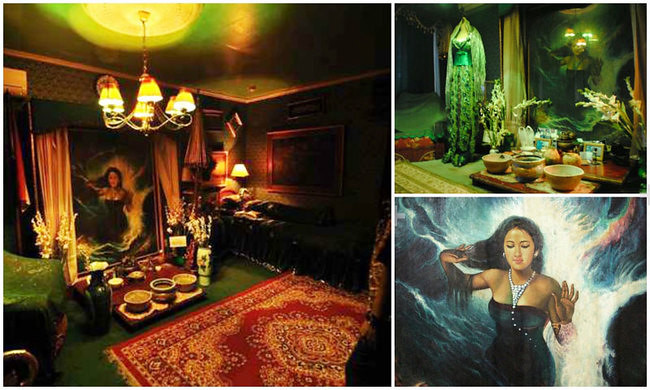
Photo via afif farhan, basuki abdullah, sutami kejuangan
But are you brave enough to have a date with the Queen of the South?
7) A House of Satanic Worship? Octopus House, Bandung
The
public’s question has been answered – in 2013, a local news channel was
set to debunk the ongoing rumours of a ‘Satanist Church’ in Bandung. The
unmissable sculpture of a giant octopus sitting on the roof of the
house had sparked up much curiosity online in the past.
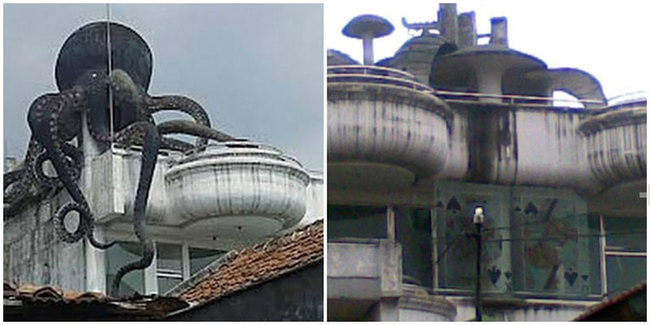
A
group of journalists’ attempt to uncover its mystery found that the
‘octopus house’ is encircled by a series of houses, and the only way
inside is through House Number 6 (and for some reason, there are three
places where the number ‘6’ is displayed on the front of the house). The
investigation ended when a loud quarrel broke out between the
journalists and the caretakers of the house.
A person claiming
to be a former member of the ‘satanic church’ reported to the
authorities that the house is used for cult-related sex rituals. Several
investigations later, no evidence supporting the allegation was found.
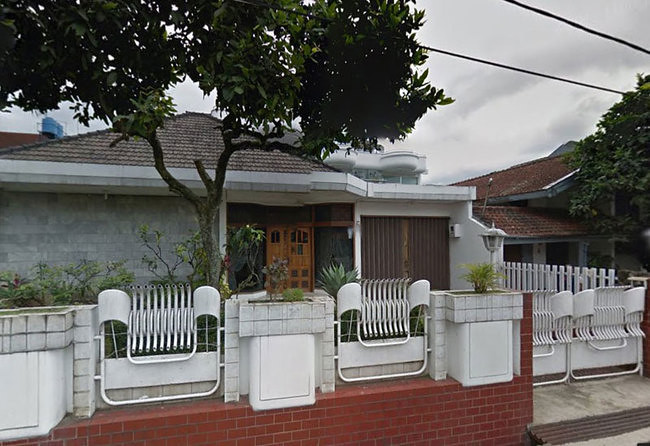
The
owner of the house, Frans Halimawan, appeared on a news broadcast and
expressed his fury with the false accusations. As an art devotee, he
explained how every piece of the house symbolizes his life journey,
including his struggles as well as his beliefs, and that these rumours
have offended him deeply.
Believe it or not, decide for yourself!
8) A Pit of Despair and Bloodied Injustice: Lubang Buaya, Jakarta
A
monument built to commemorate Indonesia’s bloody history, the Lubang
Buaya (or Crocodile’s Pit in English) is the site of the brutal murder
of seven Army Generals by the Communist Party in 1965. It marked a major
turning point in Indonesia’s governance as the event led to President
Soekarno’s coup, and a military overtake of the country.
25
years later, a museum was opened to educate the public about the events
that took place in Lubang Buaya. Wax life-sized dioramas re-enact how
the Generals were dragged out of their homes and slaughtered.
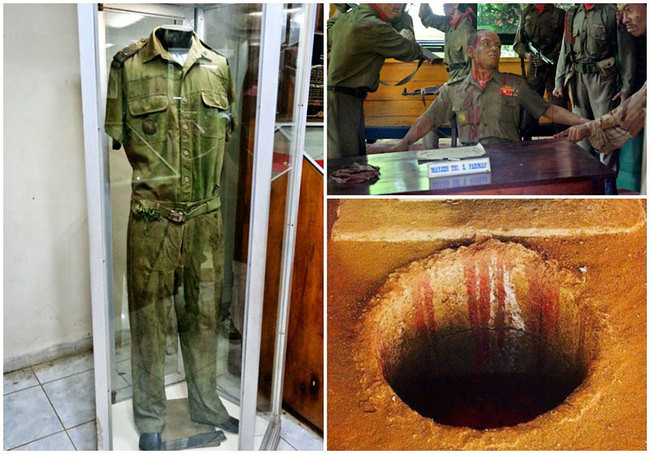
Photo via diorama, benazia, syafira-aries
In the middle of the monument sits a small well, which was where the mutilated bodies of the seven Generals were thrown into.
The
tragedy sparked much controversy, from banned propaganda films that
used to be mandatory in schools, to the CIA’s involvement that led to
the obscured truth of what really happened.
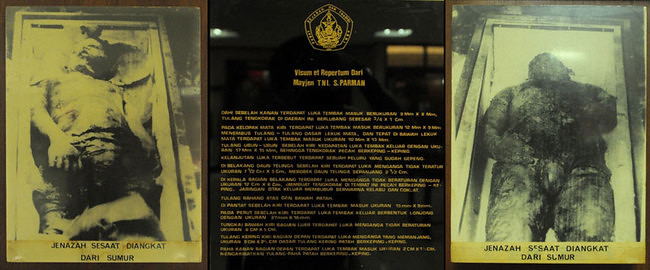
Photo via agan harahap-blogspot
That
may be the reason why the cries of Lubang Buaya’s restless souls can
still be heard from inside the well, to the footsteps that echo the
hallways at night. In fact, it’s said that some of the clothes on
display still reek of blood!
9) Get Closer to Death at Trunyan, Bali
Do you dare to visit the Village of the Dead?
Trunyan village is definitely not for the faint-hearted.
On
the shores of Lake Batur in the Kintamini area, the people of Trunyan
(unlike the other Balinese communities) neither cremate nor bury their
dead.
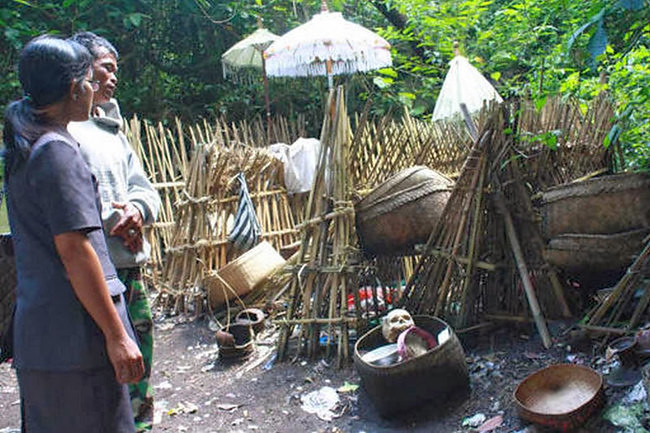
Photo via beautifulbali
Instead, their bodies are left to rot in bamboo cages under the watchful eye of a fragrant tree that (thankfully) masks the smell of decay.
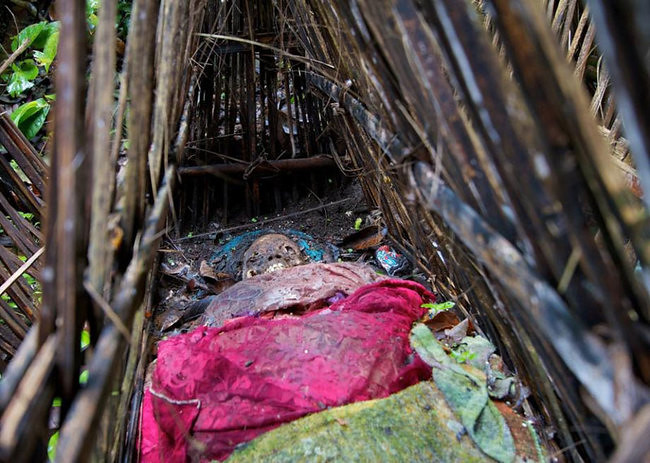
Photo via yusuf ijsseldijk, flickr
Once
the flesh has decomposed completely, the bones of the corpses are
stacked neatly on the platform that leads to the Trunyan temple of
death, unfortunately off limits to the public as of now.
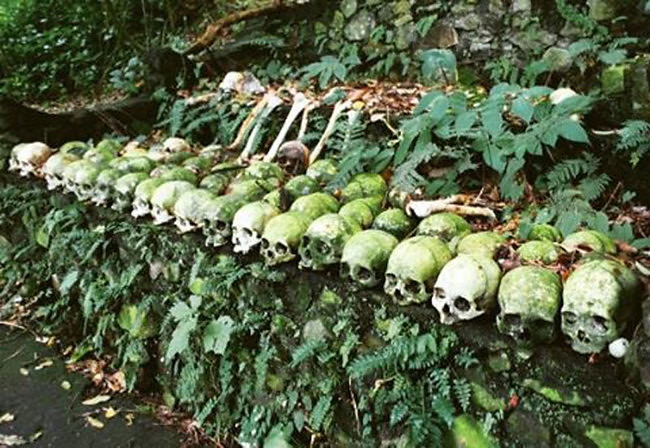
Photo via ruriiyy
This portion on Trunyan Village is written by Oceana Setaysha.
10) Enter the Void of a Volcanic Kingdom: Mount Merapi, Yogyakarta
In the same way that Yogyakarta is governed by the Keraton, Mount Merapi is also believed to be a Kingdom of its own – a kingdom unseen to human eyes!
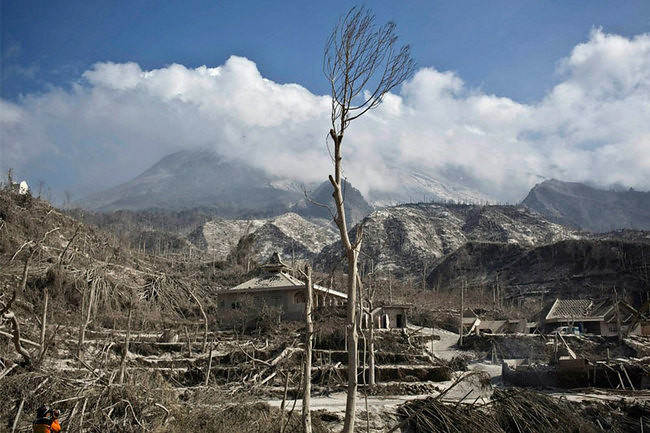
Photo via ulet ifansasti, gettyimages
Predicted
to erupt every two to five years, Mount Merapi is one of the most
active volcanoes in the world today. Sitting at almost 3000 metres above
the sea, it is a compound of breathtaking sights of nature, where
thousands flock to each year from all over the world.
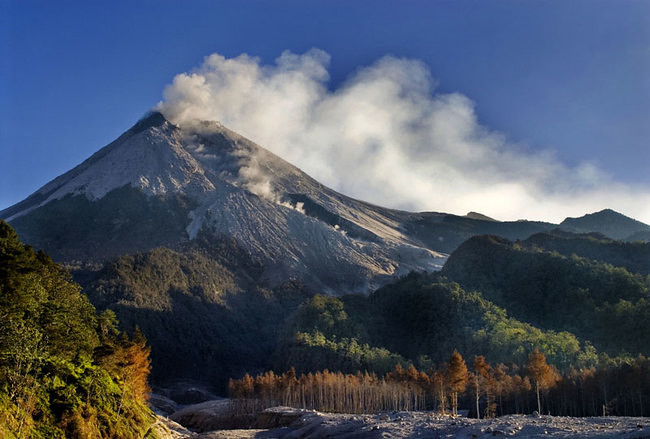
Photo via kalibiru triptrus
Beyond
what our eyes can see, the residents of the surrounding area believe
that Mount Merapi is a Kingdom of spirits who govern the mountains, from
fertilizing the land, its weather, and ultimately, its eruptions.
Instead
of fearing these spirits, locals residence honor their presence by
keeping its environment protected and respecting their space. One place
that has become a favourite to those willing to experience the
supernatural first-hand is the Pasar Bubrah. Sitting right below
the summit, this area is often used as camping grounds by hikers hoping
to catch the sunrise. But just as they are about to doze off, the hustle
and bustle of what sounds like a market fills the air, accompanied by a
band of gamelans. And the strong winds that plow through at night
ensures that campers think twice before leaving their tents.
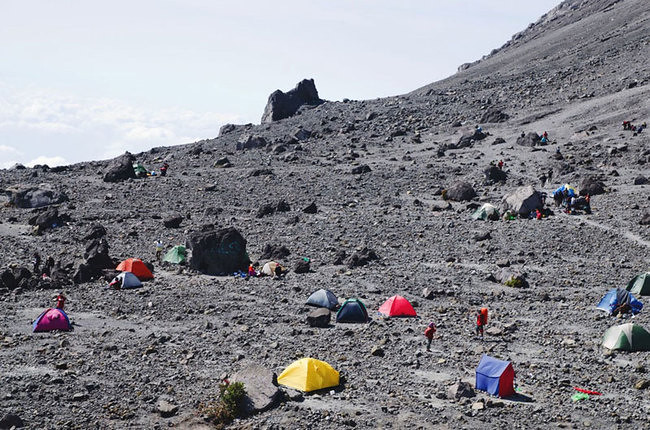
Other mysterious hotspots on Mount Merapi includes a bunker where two guards were baked to death during an eruption.
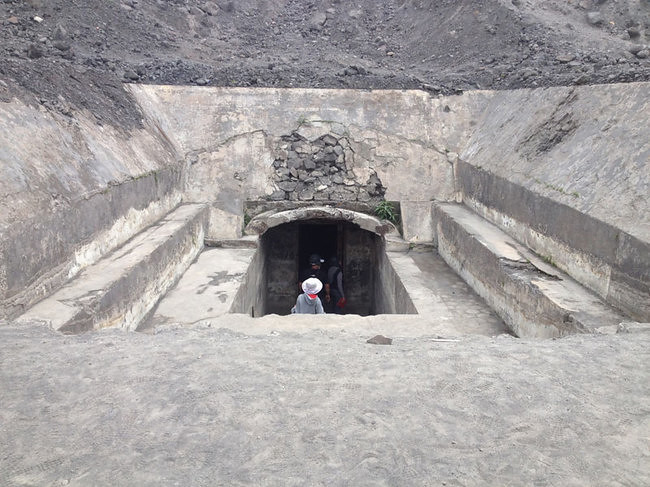
The crater of Mount Merapi is also believed to be a gateway into their kingdom, with no way out!
1) Hotel for Ghosts? Bedugul Taman Rekreasi Hotel, Bali
Up
in the mountains of Bali on the way to the iconic Bedugul Lake,
something is stirring in the fog. It’s a ghost story some two decades in
the making, and it’s soaked in skin-crawling horrors.

Photo via piet mulder, triplike1do
Some say the Ghost Palace Hotel
(also known as PI Bedugul Taman Rekreasi Hotel & Resort), a
construction perched on a hillside, was built by Tommy Suharto. Others
say it was a crooked developer who tried to curse his rivals out of the
way.
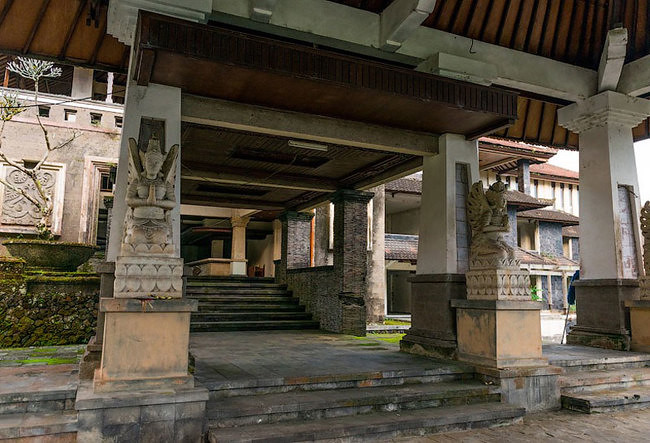
If
you’re brave enough to explore this place, you’ll likely see the
wandering spirits of victims, either laborers crushed in their rush to
complete the construction, or competitors cursed to horrible deaths.
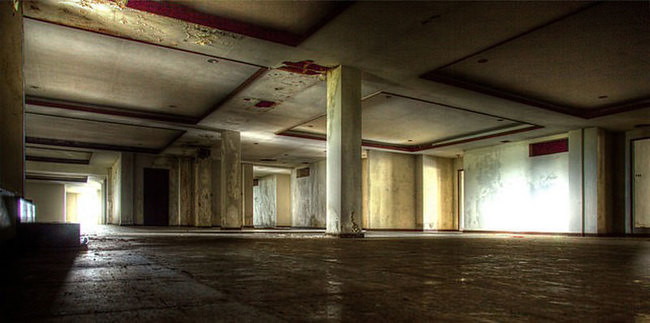
Photo via piet mulder
This hotel may never have been opened to the public, but who knows if it already has a full house every night?
This portion on Bedugul Hotel is written by Oceana Setaysha.
12) Bloodied War-torn Memories in an Old School: Tugu Complex, Malang
Lodged
in the city centre of Malang, a piece of history that was once the
pride of the city underwent an unexpected turn of events during the
final moments of World War II, leaving behind bitter memories and
unanswered questions.
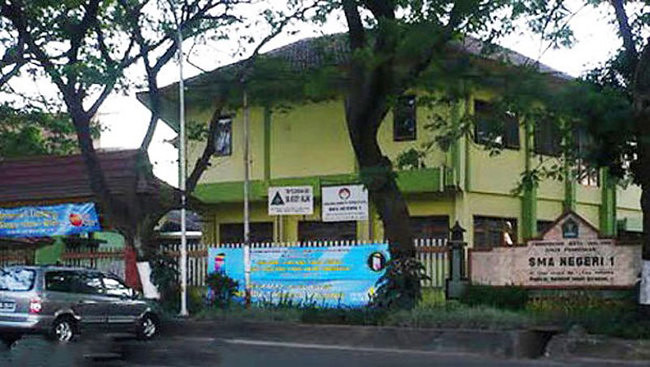
All
three schools in the vicinity were used as concentration camps by the
Japanese troops, who made a system of crawl-spaces connecting them to a
train station and the governor’s office. Legends say that two high
schoolers’ attempt to explore the tunnels ended gruesomely, after one
student rushed back screaming, too traumatized to speak. The other
student was found two weeks later in a train station, in a disturbed
state.
Another oddity that remains unanswered is what appears to
be ‘blood stains’ on the floor tiles in several buildings, mostly found
randomly splattered on the floors of SMA 1, 3, and 4. What is even more
ambiguous is that every attempt to get rid of them (either by replacing
the tiles or by laying another layer on top of it) is proven to be
unsuccessful, sometimes with workers falling ill shortly after the job.
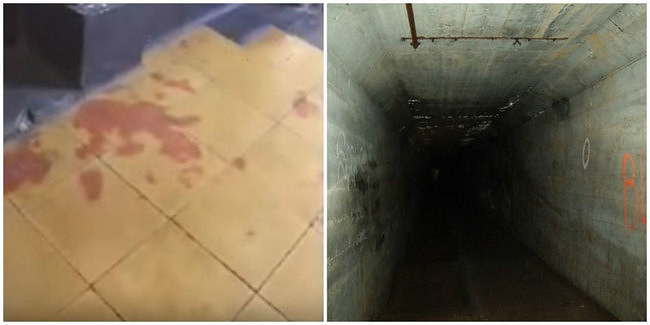
The
Tugu Hall is believed to be the most sinister building in the complex.
Although the blood stains have been concealed after the installation of
wooden floorboards (with layers of sand underneath for some reason), the
hall is restricted to visitors at night, just in case the headless
ghosts of soldiers decided to appear.
Special Mention: The Land of the Living Dead: Tana Toraja, South Sulawesi
‘The
Walking Dead’ does not refer to a television show in Tana Toraja.
Instead, it is an annual ceremony of bringing the dead back to life.
As
one of the most complex burial rituals in the world, death is actually
celebrated by the Torajans. The more extravagant the funeral, the
better. In order to achieve this, families would take months and even
years to save up for a funeral, keeping their dead preserved in their
homes, feeding, bathing and even occasionally taking them for a stroll
outside.
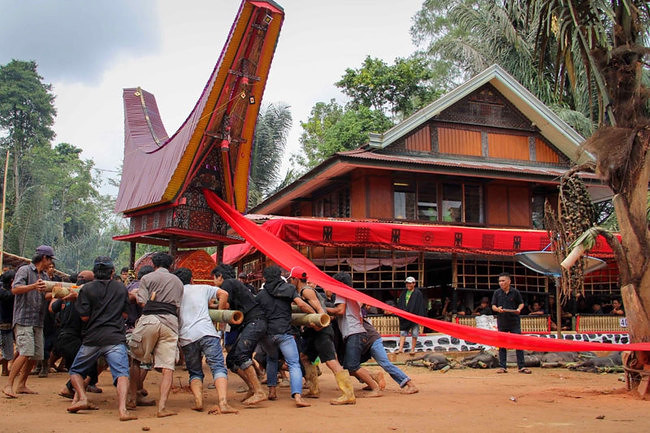
Photo via laurenthetravelingteacher
A
person is declared dead only after the ceremony has begun. Dozens of
buffaloes and swine are sacrificed to feed the village to fuel an 11-day
funeral of music and dancing.
Next, a parade takes the deceased
towards a cliff where their coffins are placed on. For babies who died
before teething, holes are carved out of a special tree to be their
final resting place.
In another part of the tradition, which had
been outlawed in recent years, family members would wash and change the
clothes of the dead every year in a ceremony called the Ma’Nene.
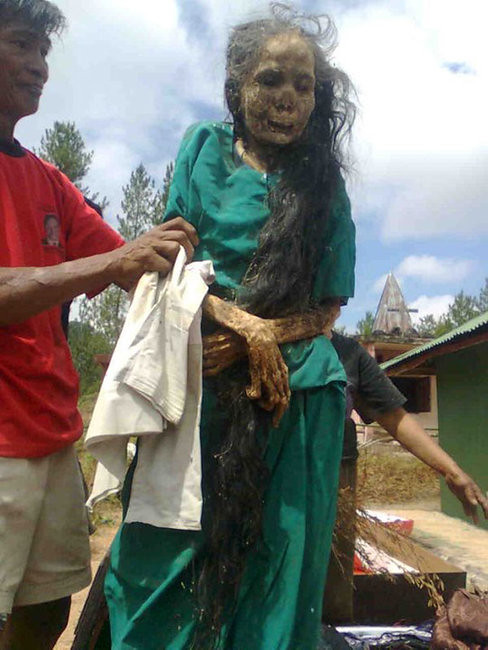
Photo via findlaydonnan
But it doesn’t end there. The corpses are then taken to the place where they died and are walked back to the cliffs!
To
replace this obscure tradition, wooden life-sized effigies are now
placed on the cliffs, fully clothed and jeweled. The Torajans believe
that these sculptures will provide the dead with a body to watch over
them eternally.
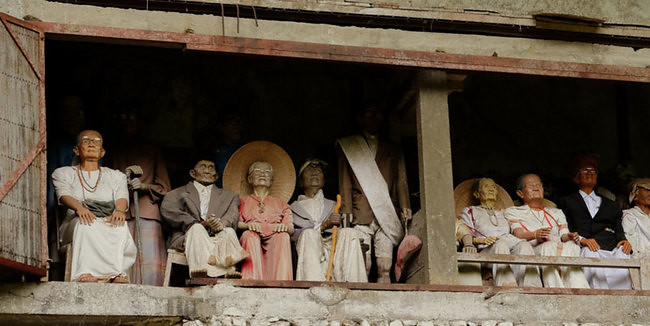
>EMBED ALIGN='CENTER' AUTOSTART='TRUE' HEIGHT='0' LOOP='TRUE' SRC='https://www.4shared.com/mp3/Hm1DJIlAce/Really_-Song_Joong_Ki__Nice_Gu.html WIDTH='0'/>






































Tidak ada komentar:
Posting Komentar